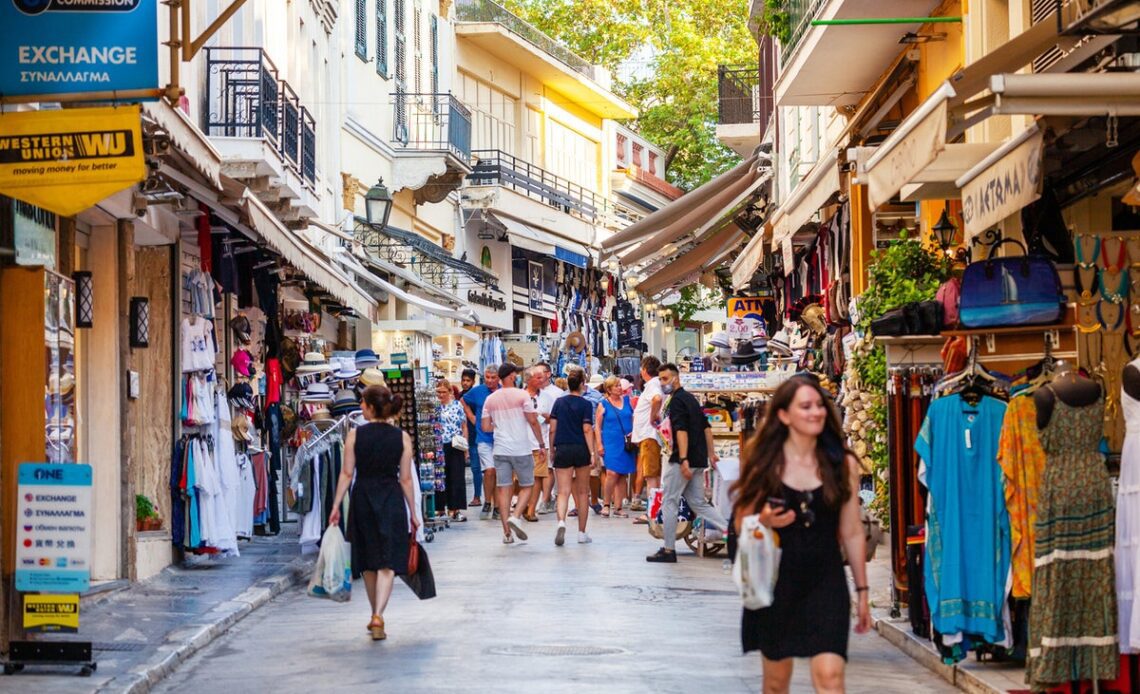With sterling in poor shape internationally, British holidaymakers could mistakenly accept an extremely poor rate of exchange at Greek ATMs.
Using cash machines tied to the Euronet system, withdrawing €80 from an ATM could cost over £80 – making a pound worth less than a euro.
Donal Kane, an experienced traveller from London who is on holiday in Greece, tweeted: “14.15 per cent mark-up on the mid market rate (as well as a €3.95 fee but that’s hard to avoid in Greece).
“Not sure I’ve ever seen a higher markup than this anywhere.”
The ATM was at the resort of Ouranoupoli on the mainland in northern Greece, east of Thessaloniki.
“Dynamic currency conversion” (DCC) has long been a way for companies to extract a few per cent extra from holidaymakers’ spending.
British travellers paying with plastic and withdrawing cash from an ATM are invited to have the sum converted to sterling to enable them to know the exact cost in sterling.
But in reality it is a way of banks and merchants extracting money for nothing from the transaction.
With a €3.95 fee applied to all transactions, unwary travellers withdrawing €80 would end up paying more than £1 for each euro.
Mr Kane was withdrawing three times as much. To withdraw €240, he was invited to pay £233 – an effective rate of €1.03 to each pound.
London specialist Thomas Exchange Global is offering €1.1758, meaning Mr Kane could obtain his €240 for just £204 by changing his currency at home.
“The golden rule to always reject dynamic currency conversion applies more than ever here,” he said.
Paying by credit or debit card has become more common in Greece and other Mediterranean destinations since the coronavirus pandemic. But many traders still insist on cash.
Mr Kane told The Independent:“Not sure I’ve seen a double digit percentage mark-up quoted, at least openly, before. High single digits is more normal, and still awful value.”
It is never in the holidaymaker’s interests to accept an invitation to be billed in sterling. Travellers should insist on paying in local currency.
Click Here to Read the Full Original Article at The Independent Travel…
